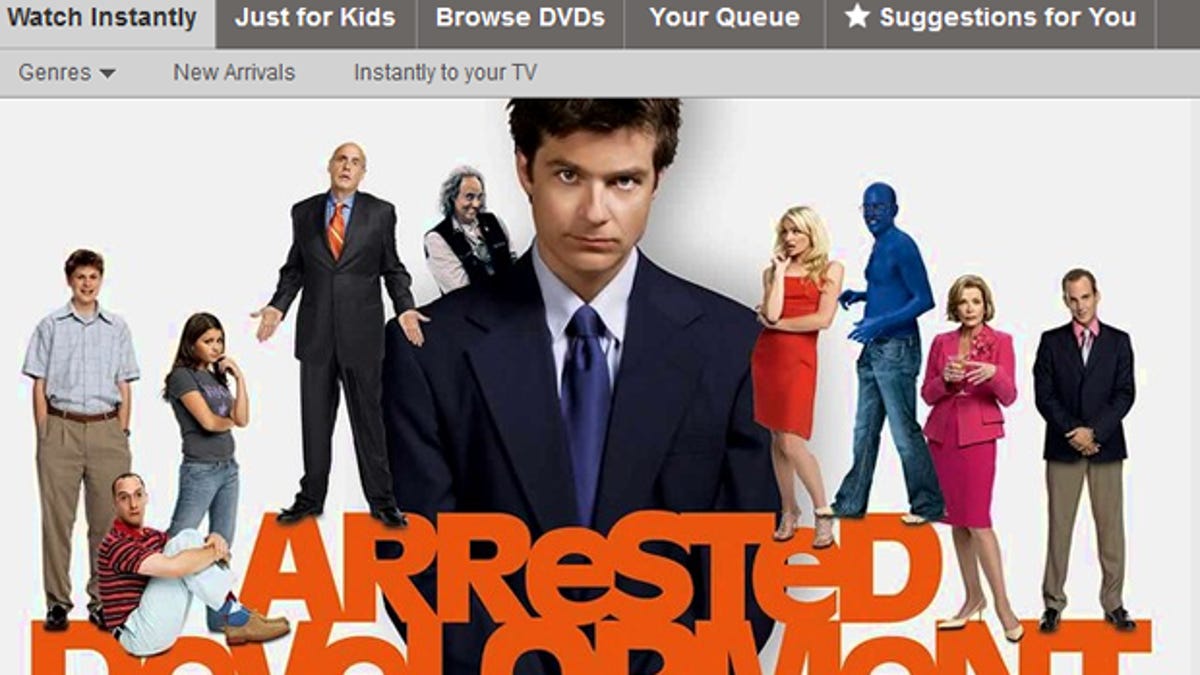'Arrested Development' a bust? Netflix laughs off the critics
The mixed critical response to 'Arrested Development' trips up Netflix's ambitions for buzz-worthy original programming, but it certainly isn't slowing down the company.

When Netflix's "Arrested Development" landed this week, it was with more of a thud than, say, whatever sound would be produced by the catlike agility of a Tobias Funke.
"Arrested Development" succeeded in generating tremendous hype for Netflix, but the initial lukewarm reception suggests the show kicked the can down the road, rather than rocketing the company forward, in regard to its ambitions to become a high-profile source of original programming.
Original shows and films are en vogue now, with the likes of Hulu and Amazon investing in exclusive programs. The hope is that the companies behind the streaming services will grow beyond their catalog of older movies and television shows and evolve into an HBO or Showtime -- a must-visit destination for edgy shows and the stuff of water cooler chatter that ultimately drives subscriptions.
The "Arrested Development" debut illustrates that such a goal will take more than the resurrection of a much-beloved cult hit -- particularly if questions arise about whether the show has the same magic.
Ted Sarandos, Netflix's chief content officer, acknowledged some of the backlash but still said during a conference on Thursday that he was "thrilled" with the critical response and outlined plans for the company to triple his budget on original content. Speaking to a group of investors at a Nomura media summit in New York, he quipped, "I hope you guys are really not trading on a New York Times review."
But they had. The series, which has been off the air longer than it was ever on it, was revived with 15 new episodes Sunday, to mixed reviews. Particularly harsh, The New York Times said the Netflix endeavor killed the show. Based on the tepid reception, investors rushed to sell the stock Tuesday, with shares falling 6.4 percent.
Taking the long-term view
CEO Reed Hastings, in an interview on CNBC yesterday, said that unlike linear TV, "we're really not focusing on the day-one ratings, it's really over the first year." Hastings and other executives have declined to give any statistics about the show's viewership this week, other than to say that the initial response has, as Hastings put it, met Netflix's "very high expectations." He also disclosed that as of yesterday, he's watched a total of two episodes. (He's savoring, he said.)
Hastings may be overstating the long-term potential of "Arrested Development." Audience levels for Netflix's other recent forays into original programming -- "House of Cards" and horror series "Hemlock Grove" -- hit their peaks in the second week after release, Russ Crupnick, senior vice president of industry analysis at NDP, said.
And "Arrested Development" is a show people tend to binge on, watching an entire run in a single sitting, which accentuates early viewing. In the 15 weeks leading up to the new episodes, people were watching as many as 10 of the old "Arrested Development" shows in a single week, a strong enough number to turn Crupnick's head.
The backlash against "Arrested Development" is particularly glaring because Netflix's freshman offering, the Kevin Spacey-led political thriller "House of Cards," struck a chord with critics and viewers alike. Relative to "House of Cards," "Arrested Development," which was considered more of a slam dunk to succeed, has been a critical disappointment.
Sarandos, however, said he thought the reviews had improved as time allowed people to enjoy it at a more leisurely pace.
Was it worth it?
Ultimately, it's not about ratings or critical reaction, but how many customers joined Netflix for "Arrested Development" that will determine if the show was a success.
The "Arrested Development" bet is that once a show brings in a subscriber, the rest of the site's content will be compelling enough to have that person stick around, said Michael Pachter, an analyst at Wedbush Securities.
But, Pachter noted that the kind of customer "Arrested Development" attracts isn't the type to stick around and pay for Netflix. If they left once, they're likely to do it again after the binge viewing.
"The question is how many of the people coming are former Netflix customers, and my guess is it's a high percentage because 'Arrested Development' skews young."
There are other costs beyond marketing and production of the show itself. The attention and money lavished on "Arrested Development" meant other programming got shunted.
"They just sacrificed 2,000 titles from MTV and Nickelodeon, so they're alienating a big part of their subscriber base to go after the millennial crowd," said Rich Tullo, director of research at Albert Fried & Co. It's budget shifting, and they're sacrificing hugely popular content to do it, he said.
And there's an indication that people may not even be paying Netflix for the privilege of watching the show. Pirated downloads of the first episode on public BitTorrent trackers hit 175,000 in first two days, based on TorrentFreak numbers. That's a fraction of the activity for other series, like "Game of Thrones," but Netflix is much more accessible than HBO's model -- limiting online viewing to cable subscribers who pay a premium.
Regardless, getting its own shows remains a key priority for Netflix, and Sarandos said the volume of original content would double in the next 18 months. Netflix plans to devote 15 percent of its budget to original programming, compared with 5 percent now.
Perhaps the next show from Netflix will get a little of the buzz that was sorely missing from the latest "Arrested Development" run.

